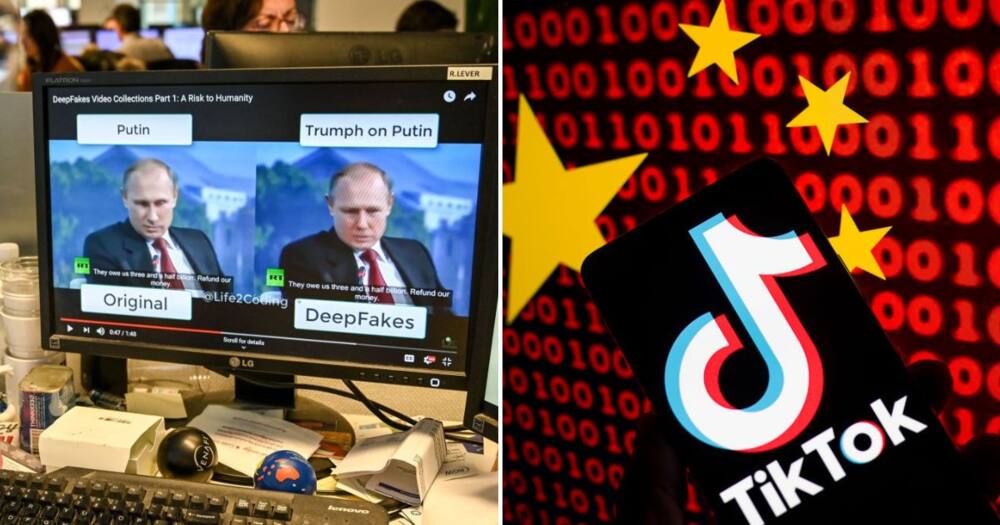TikTok's Updated Guidelines: What You Need to Know About AI-Generated Deepfakes
- TikTok updated its community guidelines to include restrictions on AI-generated deepfake content featuring real private individuals
- The guidelines aim to increase transparency and improve safety for users of the platform
- The updated guidelines balance the expressive value that synthetic media has against the risk of harm to individuals
PAY ATTENTION: Never miss breaking news – join Briefly News' Telegram channel!

Source: TikTok
TikTok updated its community guidelines to include restrictions on AI-generated deepfake content featuring real private individuals and introducing new measures for public figures. The social media app stated that it is "advancing" its approach to synthetic media, which refers to content created or modified using AI technology. The move aims to increase transparency and improve safety for users of the platform.
What is a deepfake?
According to Tech Target, deepfake AI is a form of artificial intelligence used to create realistic images, audio and video hoaxes. This term encompasses the technology itself and the fabricated content it generates and is formed by combining the words "deep learning" and "fake."
Deepfakes often involve altering existing source material by swapping one person for another. Still, they can also generate entirely new content in which an individual is depicted saying or doing something they never actually did. The primary concern associated with deepfakes is their ability to spread false information that appears to come from trusted sources. For example, in 2022, a deepfake video was released purporting to show Ukrainian President Volodymyr Zelenskyy urging his troops to surrender.
PAY ATTENTION: Follow Briefly News on Twitter and never miss the hottest topics! Find us at @brieflyza!
Another major worry is the potential for deepfakes to be used to interfere in elections and propagate propaganda. Despite these serious risks, deepfake technology also has legitimate applications, including video game audio and entertainment and customer support and call response systems such as call forwarding and receptionist services.
What are some of the new TikTok community guidelines against deepfakes?
According to a press release by TikTok, the company is "proud to be sharing these refreshed community guidelines offering our community much more transparency about our rules and how we enforce them."
The guidelines state that while the platform welcomes the use of new AI technologies for creative purposes, there are risks associated with synthetic media that can make it difficult to distinguish between fact and fiction.
The updated guidelines read:
"Synthetic media or manipulated that shows realistic scenes must be clearly disclosed. This can be done through the use of a sticker or caption, such as 'synthetic', 'fake', 'not real', or 'altered'. We balance the expressive value that synthetic media has against the risk of harms to individuals."
TikTok's guidelines also specify that the platform does not allow synthetic media featuring the likeness of any real private individual (non-public figures). The company provides more leniency for public figures and sets clear rules for their use.
The guidelines state:
"While we provide more latitude for public figures, we do not want them to be the subject of abuse, or for people to be misled about political or financial issues. We do not allow synthetic media of public figures if the content is used for endorsements or violates any other policy. This includes prohibitions on hate speech, sexual exploitation, and serious forms of harassment."
In the statement, TikTok emphasised the importance of collaboration in creating a safe online environment.
"It takes a whole village to keep people safe online, so we’re grateful to everyone in the TikTok community and to all of the external experts who have contributed and continue to help us advance our rules and stay a step ahead of emerging threats."
Popular YouTube channel Linus Tech Tips hacked to promote cryptocurrency scam
In other stories of using tech to impersonate others, Briefly News reported a popular YouTube channel with over 15 million subscribers hijacked by a malicious actor using it to promote a cryptocurrency scam. The attackers reportedly used a recording from a 2021 session of The ₿ Word conference featuring Cathie Wood, Jack Dorsey, and Elon Musk to promote the scam.
The scam involves a QR code and URL directing viewers to a Tesla-branded website that claims to give away crypto worth $100 million (R1,842,290,000.00).
PAY ATTENTION: Сheck out news that is picked exactly for YOU ➡️ click on “Recommended for you” and enjoy!
Source: Briefly News




